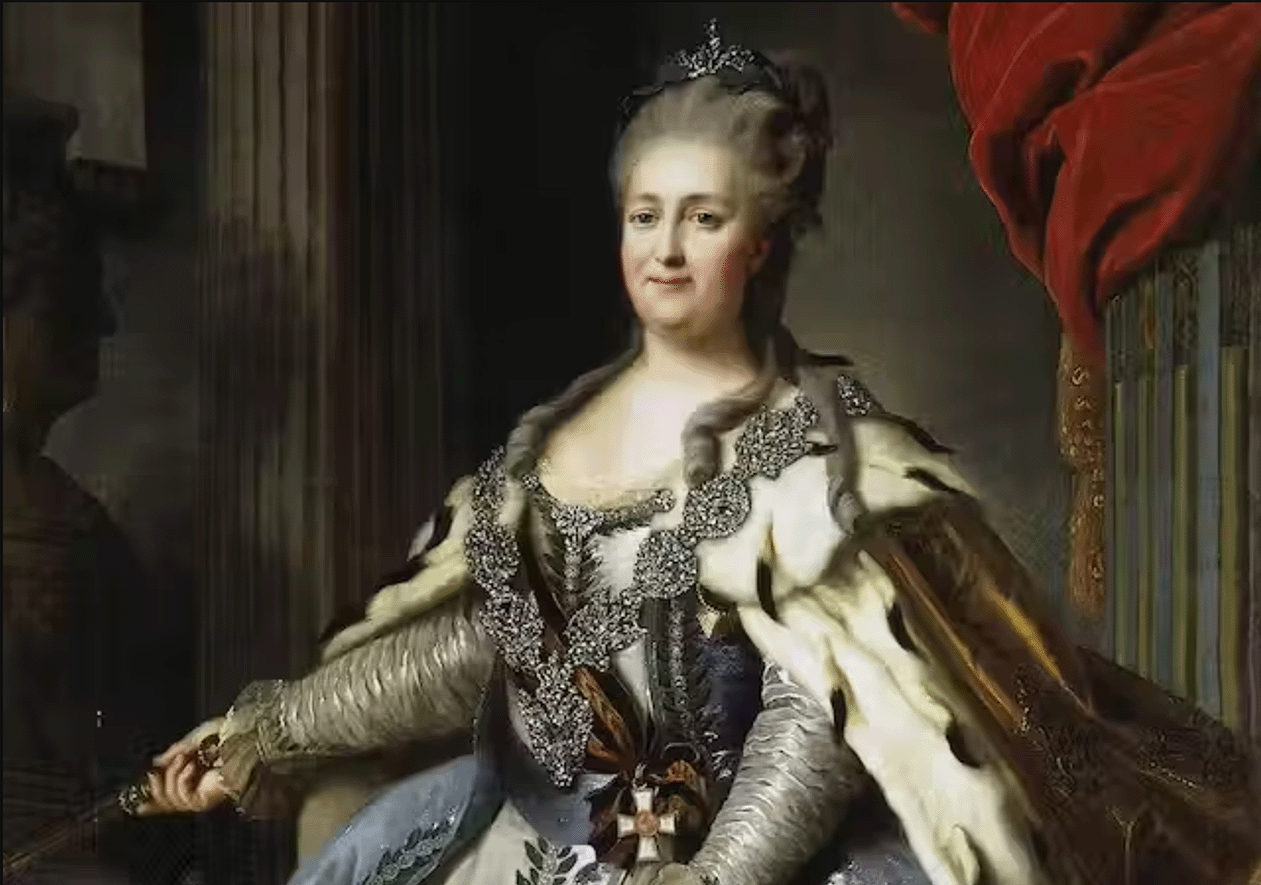






Catherine II (born Princess Sophie of Anhalt-Zerbst; 2 May 1729 – 17 November 1796), most commonly known as Catherine the Great, was the reigning empress of Russia from 1762 to 1796. She came to power after overthrowing her husband, Peter III. Under her long reign, inspired by the ideas of the Enlightenment, Russia experienced a renaissance of culture and sciences, which led to the founding of many new cities, universities, and theaters, along with large-scale immigration from the rest of Europe and the recognition of Russia as one of the great powers of Europe.
Catherine’s critics acknowledge her energy and administrative ability but point out that the achievements of her reign were as much due to her associates and to the unaided, historical development of Russian society as to the merits of the empress. And when they judge Catherine the woman, they treat her severely.
Her private life was admittedly not exemplary. She had young lovers up to the time of her unexpected death from a stroke at the age of 67. After the end of her liaison with Potemkin, who perhaps was her morganatic husband, the official favourite changed at least a dozen times; she chose handsome and insignificant young men, who were only, as one of them himself said, “kept girls.” Although in reality devoted to power above all else, she dreamed endlessly of the joys of a shared love, but her position isolated her. She did not love her son Paul, the legitimate heir, whose throne she occupied. On the other hand, she adored her grandsons, particularly the eldest, Alexander, whom she wished to succeed her. In her friendships she was loyal and generous and usually showed mercy toward her enemies.
Yet it cannot be denied that she was also egotistical, pretentious, and extremely domineering, above all a woman of action, capable of being ruthless when her own interest or that of the state was at stake. As she grew older she also became extremely vain: there was some excuse, as the most distinguished minds of Europe heaped flatteries on her that even she ultimately found exaggerated.